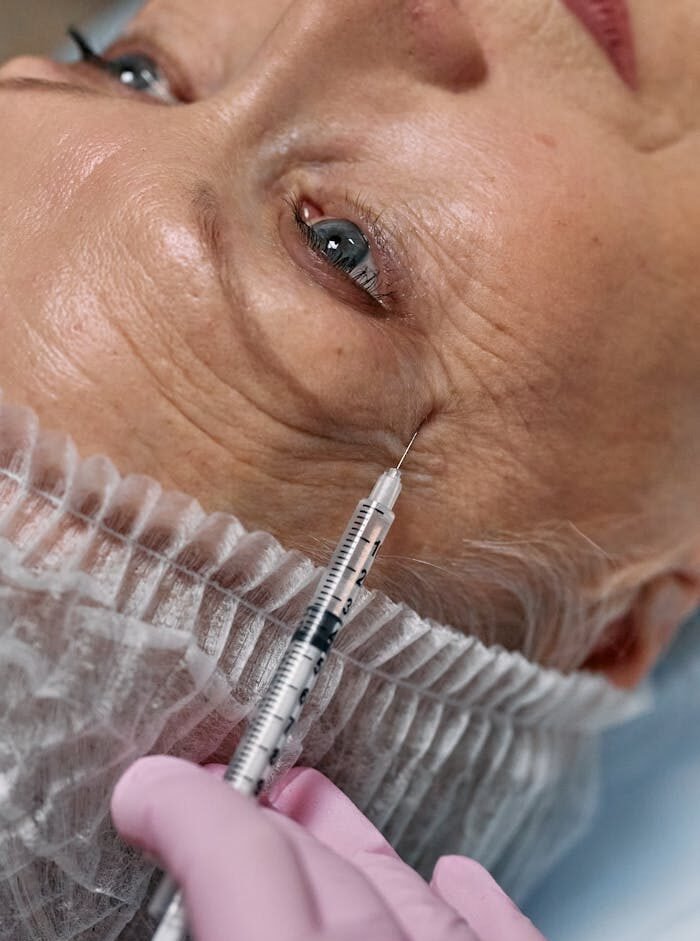Psoriasis is a chronic skin condition that affects millions of people worldwide, causing physical discomfort and often emotional distress. It’s important to understand what psoriasis is, how it manifests, and what treatment options are available. This article will break down the essentials in an easy-to-understand way to help raise awareness and provide support to those who are affected.
What is Psoriasis?
Psoriasis is an autoimmune condition where the body’s immune system mistakenly attacks healthy skin cells. Normally, skin cells take about a month to replace themselves, but in people with psoriasis, this process speeds up significantly. As a result, skin cells build up on the surface, forming thick, red patches covered with silvery scales. These patches, or “plaques,” can be itchy, painful, and sometimes even crack and bleed.
While psoriasis mainly affects the skin, it’s important to know that it is more than just a skin condition—it’s a chronic (long-term) disease with periods of flare-ups and remissions.
What Causes Psoriasis?
The exact cause of psoriasis isn’t fully understood, but genetics and the immune system play significant roles. If someone in your family has psoriasis, you are more likely to develop it, though it can also occur without a family history. In people with psoriasis, an overactive immune system triggers inflammation and speeds up skin cell turnover, causing the build-up of skin cells.
Common Triggers for Psoriasis Flare-ups Include:
- Stress: Emotional stress is a well-known trigger for psoriasis.
- Infections: Strep throat, for example, can lead to flare-ups.
- Injury to the skin: Even a small cut, scrape, or severe sunburn can trigger psoriasis.
- Medications: Certain medications, such as lithium, beta-blockers, and anti-malarial drugs, can trigger or worsen psoriasis.
- Weather: Cold, dry weather tends to make symptoms worse, while warm, sunny climates can sometimes help.
- Smoking and Alcohol: Both smoking and excessive alcohol consumption can worsen psoriasis or increase the likelihood of developing it.
Types of Psoriasis
There are several types of psoriasis, and symptoms can vary depending on the type:
- Plaque Psoriasis: This is the most common form, characterized by thick, red patches of skin covered with white or silver scales.
- Guttate Psoriasis: Appears as small, dot-like lesions and often begins in childhood or young adulthood.
- Inverse Psoriasis: Occurs in skin folds, such as under the breasts, armpits, or groin, and appears as smooth, red patches without the typical scaling.
- Pustular Psoriasis: Causes white pustules (blisters of non-infectious pus) surrounded by red skin. This type can be localized or widespread.
- Erythrodermic Psoriasis: A rare but severe form that causes widespread redness and can cover the entire body, leading to intense itching, burning, and shedding of skin.
Symptoms of Psoriasis
Psoriasis symptoms can vary from person to person and depend on the type of psoriasis they have. Common signs include:
- Red patches of skin with thick, silvery scales
- Dry, cracked skin that may bleed
- Itching, burning, or soreness
- Thickened or ridged nails
- Swollen, stiff joints (this may indicate psoriatic arthritis, which affects around 30% of people with psoriasis)
Is Psoriasis Contagious?
One of the biggest misconceptions about psoriasis is that it’s contagious. It’s not. You cannot catch psoriasis by touching someone who has it, and it’s important to clear up this myth. People with psoriasis often face stigma because others don’t understand the condition. Educating others can help reduce this stigma.
How is Psoriasis Diagnosed?
Diagnosing psoriasis typically involves a visual examination by a dermatologist. In some cases, a skin biopsy (where a small sample of skin is taken) may be needed to confirm the diagnosis and rule out other conditions. Your doctor will also ask about your medical history and any family history of psoriasis or autoimmune diseases.
Treatments for Psoriasis
While there is no cure for psoriasis, various treatments can help manage the symptoms and reduce the frequency of flare-ups. The type of treatment depends on the severity of the condition and the individual’s response to therapy.
- Topical Treatments: Creams and ointments, such as corticosteroids, vitamin D analogs, and moisturizers, are often the first line of treatment for mild to moderate psoriasis. They can reduce inflammation and slow down skin cell turnover.
- Light Therapy (Phototherapy): Controlled exposure to ultraviolet (UV) light can help reduce symptoms, especially for people with moderate to severe psoriasis.
- Systemic Medications: For more severe cases, oral or injectable medications that target the immune system may be prescribed. These include biologics and immunosuppressants, which help to control the immune system’s overreaction.
- Lifestyle Changes: Managing stress, maintaining a healthy weight, avoiding smoking, and limiting alcohol intake can improve symptoms and overall health.
- Home Remedies and Self-Care: Regular moisturizing, using medicated shampoos for scalp psoriasis, and taking oatmeal baths can provide relief from itching and scaling.
Living with Psoriasis
Living with psoriasis can be challenging, both physically and emotionally. The visibility of the condition can sometimes lead to feelings of embarrassment or low self-esteem, but it’s important to remember that you are not alone. There are many support groups and resources available for people living with psoriasis.
Tips for Coping:
- Stay informed: Educating yourself about psoriasis can help you understand your condition and treatment options.
- Talk to others: Connecting with people who have similar experiences can provide emotional support and practical tips.
- Practice self-care: Managing stress, eating a healthy diet, and following your treatment plan can improve your quality of life.
Conclusion
Psoriasis is a common but misunderstood condition that affects people in different ways. While it can’t be cured, it can be managed with the right treatments and lifestyle adjustments. If you suspect you have psoriasis or have been diagnosed with it, speaking with a dermatologist is the best way to develop a personalized treatment plan that works for you. Remember, psoriasis is not contagious, and it’s okay to talk openly about your experience. Raising awareness about the condition can help reduce stigma and support those who are living with it.
For more information, support, or to book an online consultation, visit Unified Astra today. We’re here to help you manage your skin and live confidently!
To consult with our Dermatologists, email us at : info@unifiedastra.com





